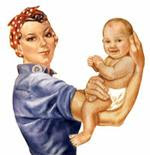Below is an excerpt from an interesting article regarding the topic I discussed last week, references and networking. Check out www.employmentdigest.net. It's a great site that has interesting information. Within your cirlce of networking, everything you do is important and can affect you in the long term. Never burn a bridge and be honest with the company you are interviewing. See below to learn more.
Fine-tune network skills for job hunts Connect without wrecking prospects
Posted: 31 Dec 2007 07:40 AM CST at http://www.employmentdigest.net/
An e-mail that a veteran marketing executive recently blitzed to 12,000 contacts begins: “On Sept. 11, to my complete and utter surprise, I was terminated …”
She identified her ex-employer and why the small market-research firm fired her. Copies of her message inadvertently landed in her old boss's inbox, prompting the company to make her sign a separation agreement limiting how she spoke about her departure, her attorney said.The otherwise effective technique could have been hassle-free. Broadcasting bad news about your job is a bad idea.
“I am a prolific networker,” the dismissed executive said in an interview.
But in hindsight, she concedes, the emotionally charged e-mail “wasn't the most professional or politic way to do it.”
Everyone knows you must network to find work following a job loss. Too often, however, unemployed people make networking missteps, prolonging a job hunt.
A common flub involves name-dropping without knowing how a contact feels about the person.
A few weeks ago, an out-of-work executive phoned recruiter Jane Howze for permission “to stop by your office and have you look at my resume.” He cited an unimpressive candidate whom she met once in 2000 but never referred to an employer.
Howze, a managing director at Houston's Alexander Group, refused to see the job seeker. “He was a little presumptuous,” she states.
Exaggerating your relationship with mutual acquaintances can set you back, too.
Recruiter Fred Whelan conferred with a financial-services marketing vice president soon after his layoff because he had claimed to be a client's friend.











